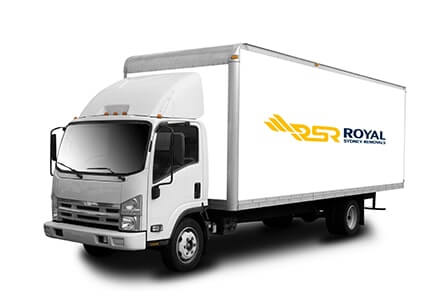Interstate vs. Local Moving: What's the Difference?
Moving is a stressful time for everyone. Whether it’s packing up all your belongings and getting ready to leave or figuring out where everything needs to go when it arrives at the new location – there are always things that need to be considered. Moving can quickly become overwhelming if you don’t know what type of move you’re dealing with. To ensure a successful move, it’s crucial to differentiate between local and interstate moving and prepare accordingly.
What is Local Moving?
Local moving refers to any move that happens within the same state. It does not include moves that cross state lines or international borders. Moving within the same state is usually cheaper than moving across state lines, as it is often faster and requires fewer resources. One truck typically handles local moves, while interstate moves may require multiple vehicles depending on the number of transported items.
Local Moving is:
- Quicker and more cost-effective than interstate moving
- Shorter travel times between locations
- Fewer resources are needed to complete the move


What is Interstate Moving?
Interstate moving refers to any move that crosses state lines. It can involve moves to any of the Australian states and typically requires larger trucks and crews to ensure all items are safely transported between states. Driving long distances will cost more than moving locally due to the additional resources and time required.
When you hire interstate movers, they usually offer services like packing, loading, and unloading. If necessary, they can also provide storage solutions. Depending on the company you select for your move, they may also assist you with unpacking and rearranging your new home.
Interstate vs. Local Moves: Understanding the Key Logistics
The logistics of interstate and local moving differ considerably. Local moves are typically shorter and may involve renting a truck or hiring a local company for a few hours, focusing on quick packing, loading, and unpacking. Interstate moves demand more detailed planning, including choosing a reputable moving company, managing longer transportation schedules, considering the size of your belongings, and adhering to different state regulations and guidelines. This comprehensive approach ensures a smoother transition for longer interstate relocations.

Local vs. Interstate Moving Expenses
Moving costs vary between local and interstate moves. Local moves are more budget-friendly, involving shorter distances and fewer resources, with charges typically based on hours or a flat rate according to the move’s size. Interstate moves, however, cost more due to longer distances, higher fuel expenses, tolls, and potential storage needs. These costs are usually based on the size of your belongings and the transportation distance. This pricing structure reflects local versus interstate relocations’ different scopes and requirements.


Packing Differences in Moving Scenarios
Packing and organization are essential in local and interstate moves, but their complexity varies. DIY packing is standard for local moves due to the shorter distance and lower risk of shifting items. In contrast, interstate moves demand meticulous packing due to longer journeys and the possibility of multiple transfers. For such moves, professional packing services are recommended to ensure the safe transport of your belongings, address the challenges of long-distance relocation, and offer peace of mind about the security of your items.

Regulations and Legal Considerations
Interstate moves require adherence to various state-specific regulations, including licensing, insurance, and permits, which aren’t typically a concern for local moves. Professional interstate moving companies know these legal requirements and ensure compliance throughout your relocation. Choosing movers with the proper credentials for interstate transportation is essential to protect your belongings and meet all legal obligations. Their expertise in navigating these legalities makes the process smoother and more secure.
Understanding Storage Requirements for Your Moving Journey
Storage needs vary between local and interstate moves. While local moves might require long-term storage for specific situations, interstate moves often necessitate temporary storage solutions. This is especially true if there’s a time gap between vacating your current home and moving into the new one. Many interstate movers provide storage facilities for such situations, offering a secure place for your belongings during the transition.


Timing and Scheduling
Timing and scheduling for interstate and local moves have distinct considerations. Local moves generally offer more flexibility, allowing for scheduling at your convenience. In contrast, interstate moves require early coordination with the movers due to complex logistics. Advanced booking is often necessary to secure your preferred dates for an interstate move, emphasizing the importance of early planning to accommodate the intricacies of long-distance logistics.
Conclusion
Interstate and local moves involve different processes and considerations, so it’s essential to understand their differences. Hiring a professional moving company can help make long-distance moves smoother, regardless of the distance your belongings need to be transported.
At Royal Sydney Removals, we specialise in interstate and local moves and have all the necessary credentials to ensure the secure transport of your belongings. Their experienced team of long-distance movers will handle every step of your move, from packing and transportation to storage solutions if needed.
Contact us today for more information about our local or intrastate moving or to get a free quote. With Royal Sydney Removals, you can trust that your belongings are safe!

Royal Sydney Removals Services
- Importance of Interstate Moving Insurance
- Ensuring the Safe Transport of Your Belongings
- Choose the Right Interstate Moving Truck Size
- Property Maintenance and Handyman Services When You Move
- Tips When Looking for Self-Storage Options
- Cost Of Living in Sydney
- Best Places to Live in Sydney
- Moving Checklist


